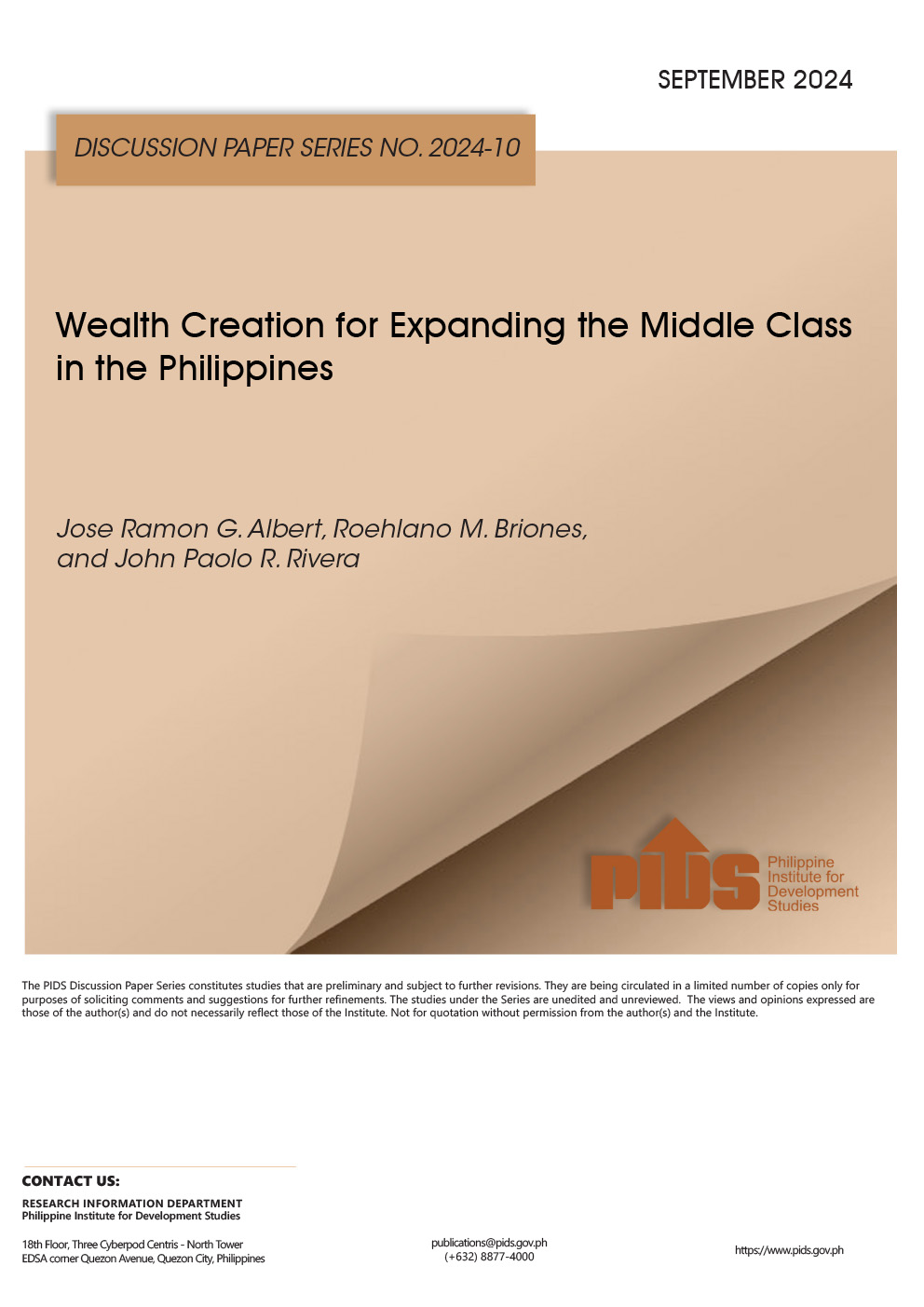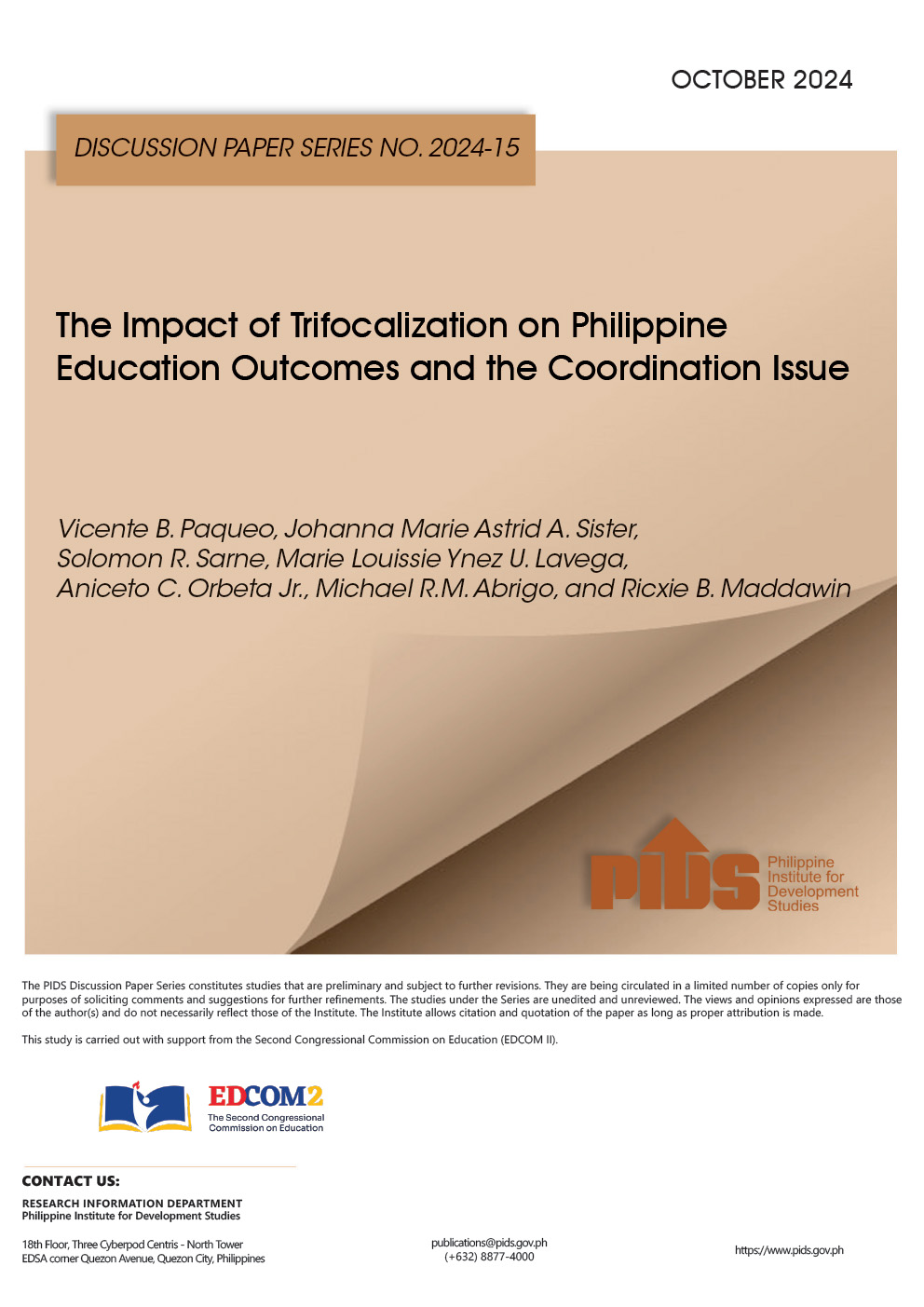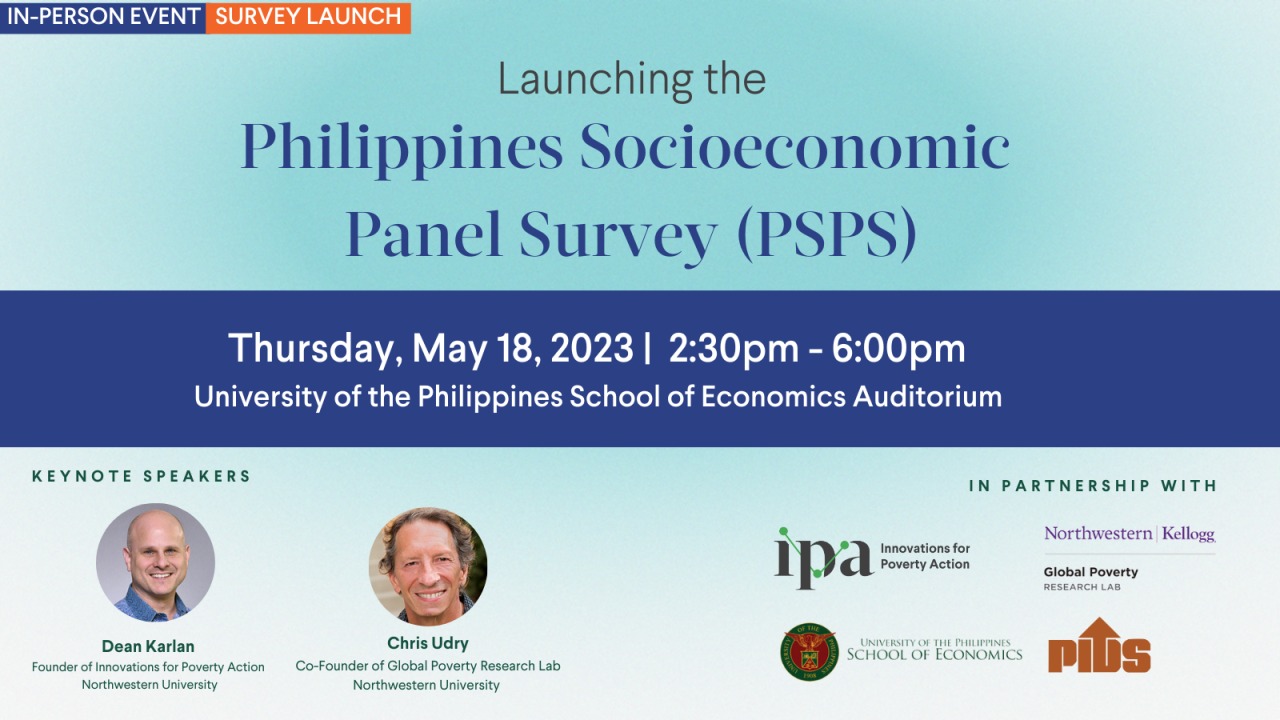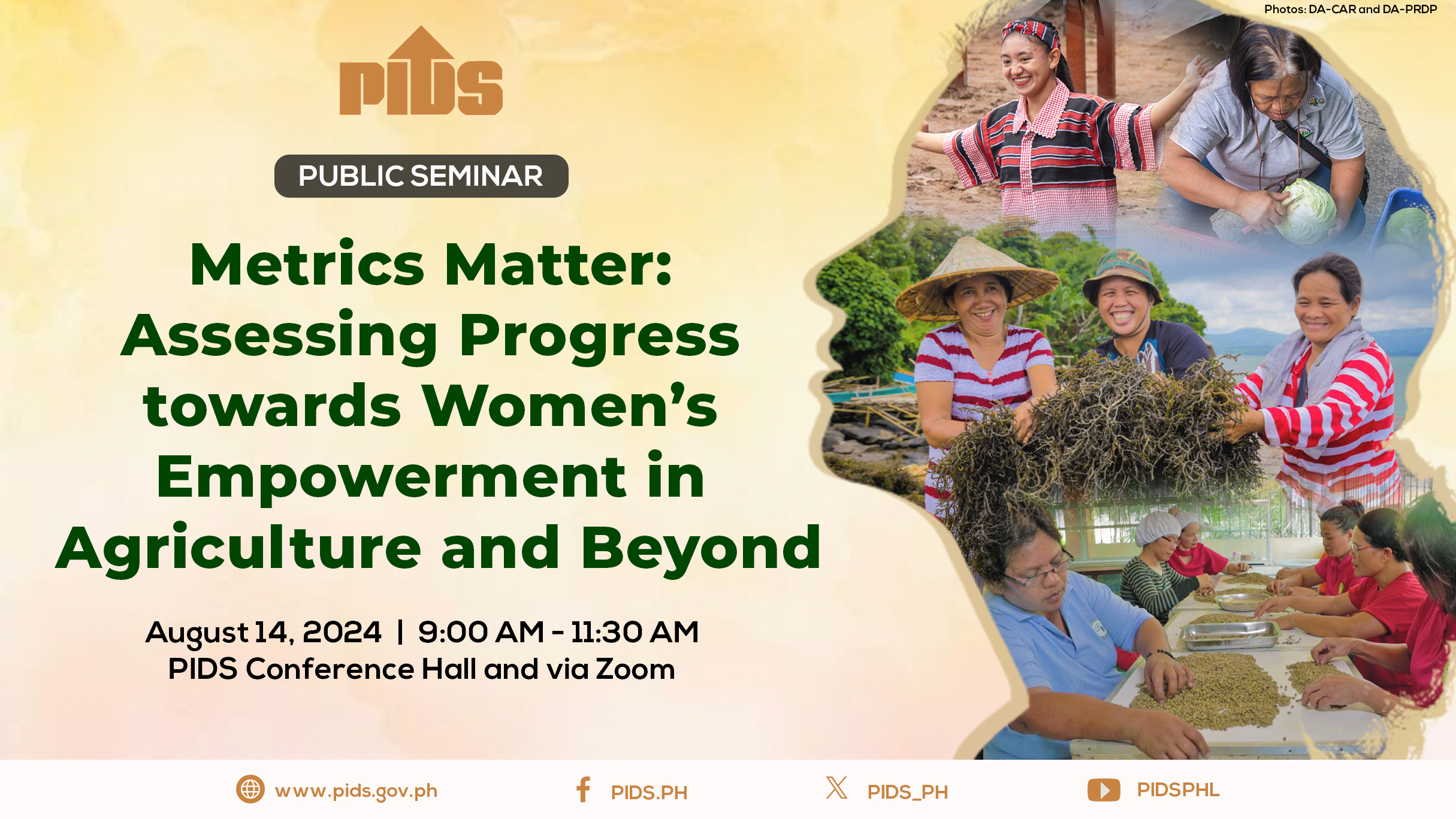A Technical Panel for Agriculture has been reconstituted by the government as part of an emerging trend to put agriculture as a preeminent policy tool in poverty reduction and economic growth that begins by massively hitching up intellectual capital.
The Commission on Higher Education (CHED) has appointed Dr. Glenn B. Gregorio, director of ASEAN agency Southeast Asian Regional Center for Graduate Study and Research in Agriculture (SEARCA) as chairperson of its Technical Panel for Agriculture (TPA).
“The reconstitution of technical panels is anchored on the need to align higher education to standards, priorities and needs in international, regional, and national settings. The experts from academe, government and industry will assist the Commission in policy formulation,” said CHED Chairman J. Prospero E. De Vera III.
As agriculture remains a major engine of economic development in most Southeast Asian countries, Gregorio reiterated the strategic position of higher education (HEIs) to pursue initiatives on food and nutrition security.
Development economists have long been proposing a reform in the country’s agriculture education as rural poverty has prevailed along with wealth distribution inequalities.
Not only has interest among the youth to take a career on agriculture declined. This has adversely affected innovation and technology development in the agriculture sector.
“Agricultural modernization is essential in the Philippines’ strategy for inclusive growth. The mandate of many public sector higher education institutions is to create a pool of skilled workers to increase the competitiveness of our agriculture and fisheries sector,” according to Philippine Institute of Development Studies (PIDS) President Gilberto Llanto.
As early as in 2007, economists proposed to former Philippines President Gloria Macapagal Arroyo three major components of the agriculture education reform. These are policy research, institutional capacity enhancement for entrepreneurship, and support to agri-enterprise building in SUCs (state universities and colleges).
“This program came about at a time when pressing issues on spiraling food prices, food security, climate change, and environmental degradation brought agriculture to the limelight. These have prompted calls to rethink development efforts in agriculture,” they said.
“The support to this program recognizes that universities have a crucial role to play. Apart from being the knowledge and resource base in their localities, the SUCs should be able to churn out graduates as champions in fueling development and sustainability in the countryside.”
Llanto said the decline in skilled labor force arising from a decrease in Agriculture, Forestry, and Natural Resources (AFNR) enrolment makes Philippines’ future prospect in agriculture questionable.
The proposal to Arroyo was supported by experts both from PIDS and the Philippine Council for Agriculture, Aquatic, and Natural Resources Research and Development (PCAARRD).
“Now is the most opportune time to implement the long overdue rationalization of SUCs to allow them to offer agri-oriented Technical Vocational Education and Training programs, focusing on agribusiness-oriented agriculture,” according to Dr. Patricio Faylon in “Higher Education in Agriculture, Trends, Prospects, and Policy Directions.
The country’s agility in designing curricular and extension programs (technology transfer from the hands of scientists to farmers) to produce professionals who can engage in achieving food and nutrition security goals is critical, Gregorio said.
The diversification of the agriculture sector and AFNR-related programs will significantly address the changing needs of the local and global economic environment in employment and better income.
“Agriculture diversification, agribusiness promotion, and investment in rural and market-related infrastructure should be pursued,” said Faylon, a former PCAARRD executive director and five other co-authors in a separate position paper on “State and Future Supply and Demand for Agriculture, Forestry and Natural Resources Graduates in the Philippines.”
A major component of the reform is the provision of venues for students to have practical training on entrepreneurship and technology business incubation.
HEIs and SUCs must supply the needs of business and industry for skilled labor which consequently will prop up demand for agriculture graduates.
“SUCs might need to reinvent themselves as producers of a new breed of students and graduates like agribusiness entrepreneurs engaged in lucrative enterprises. When wage employment prospects are dim, graduates can opt to employ themselves through their self-run agricultural businesses.”
Faylon’s co-authors are Ruperto S. Sangalang, Albert P. Aquino, Melvin B. Carlos, Richard B. Daite, and Ernesto O. Brown.
The students themselves should have “adequate immersion” in managing and operating actual enterprises.
This includes introducing new modes of training through Educational Income Generating Projects (E-IGPs), Technopreneurial Learning Projects (TLPs),Technology-Based Enterprise Development (DATBED), and Technology Business Incubators (TBIs), according to Faylon’s group.
The proposal to Arroyo envisioned AFNR graduates as professional entrepreneurs capable of “exploring and exploiting business opportunities in AFNR.”
The PIDS and PCAARRD experts stressed, “Economic theory suggests that formal education is a productive investment in human capital, an important determinant of economic growth (quoting other economic theorist Schultz, 1971 and Becker, 1975).”
“Education is deemed to increase the productivity and efficiency of the work force, thereby facilitating higher output, and consequently stimulating economic growth. At the micro-level, investment in education increases the potential for employment and enhances earnings of individuals ((Mincer 1958).”
PIDS research experts said the role of agriculture and environment sectors in economic development has been placed in the backseat in favor of manufacturing and services.
“More so is the importance of education and human resources development in the AFNR sea mctor itself,” said Roehlano M. Briones, PIDS senior research fellow.
Gregorio said reforming the agriculture curriculum in the country’s HEIs is critical in making labor competencies more relevant to future job markets.
Other members of the TPA from the academe are Dr. Candida Adalla and Dr. Domingo Angeles, former College of Agriculture deans from the University of the Philippines-Los Banos, and Dr. Danilo Abayon from Aklan State University. Representatives from the industry are Nikole Ma. Nimfa Alicer, farmer and founder of Kalipayan Farms.
The Commission on Higher Education (CHED) has appointed Dr. Glenn B. Gregorio, director of ASEAN agency Southeast Asian Regional Center for Graduate Study and Research in Agriculture (SEARCA) as chairperson of its Technical Panel for Agriculture (TPA).
“The reconstitution of technical panels is anchored on the need to align higher education to standards, priorities and needs in international, regional, and national settings. The experts from academe, government and industry will assist the Commission in policy formulation,” said CHED Chairman J. Prospero E. De Vera III.
As agriculture remains a major engine of economic development in most Southeast Asian countries, Gregorio reiterated the strategic position of higher education (HEIs) to pursue initiatives on food and nutrition security.
Development economists have long been proposing a reform in the country’s agriculture education as rural poverty has prevailed along with wealth distribution inequalities.
Not only has interest among the youth to take a career on agriculture declined. This has adversely affected innovation and technology development in the agriculture sector.
“Agricultural modernization is essential in the Philippines’ strategy for inclusive growth. The mandate of many public sector higher education institutions is to create a pool of skilled workers to increase the competitiveness of our agriculture and fisheries sector,” according to Philippine Institute of Development Studies (PIDS) President Gilberto Llanto.
As early as in 2007, economists proposed to former Philippines President Gloria Macapagal Arroyo three major components of the agriculture education reform. These are policy research, institutional capacity enhancement for entrepreneurship, and support to agri-enterprise building in SUCs (state universities and colleges).
“This program came about at a time when pressing issues on spiraling food prices, food security, climate change, and environmental degradation brought agriculture to the limelight. These have prompted calls to rethink development efforts in agriculture,” they said.
“The support to this program recognizes that universities have a crucial role to play. Apart from being the knowledge and resource base in their localities, the SUCs should be able to churn out graduates as champions in fueling development and sustainability in the countryside.”
Llanto said the decline in skilled labor force arising from a decrease in Agriculture, Forestry, and Natural Resources (AFNR) enrolment makes Philippines’ future prospect in agriculture questionable.
The proposal to Arroyo was supported by experts both from PIDS and the Philippine Council for Agriculture, Aquatic, and Natural Resources Research and Development (PCAARRD).
“Now is the most opportune time to implement the long overdue rationalization of SUCs to allow them to offer agri-oriented Technical Vocational Education and Training programs, focusing on agribusiness-oriented agriculture,” according to Dr. Patricio Faylon in “Higher Education in Agriculture, Trends, Prospects, and Policy Directions.
The country’s agility in designing curricular and extension programs (technology transfer from the hands of scientists to farmers) to produce professionals who can engage in achieving food and nutrition security goals is critical, Gregorio said.
The diversification of the agriculture sector and AFNR-related programs will significantly address the changing needs of the local and global economic environment in employment and better income.
“Agriculture diversification, agribusiness promotion, and investment in rural and market-related infrastructure should be pursued,” said Faylon, a former PCAARRD executive director and five other co-authors in a separate position paper on “State and Future Supply and Demand for Agriculture, Forestry and Natural Resources Graduates in the Philippines.”
A major component of the reform is the provision of venues for students to have practical training on entrepreneurship and technology business incubation.
HEIs and SUCs must supply the needs of business and industry for skilled labor which consequently will prop up demand for agriculture graduates.
“SUCs might need to reinvent themselves as producers of a new breed of students and graduates like agribusiness entrepreneurs engaged in lucrative enterprises. When wage employment prospects are dim, graduates can opt to employ themselves through their self-run agricultural businesses.”
Faylon’s co-authors are Ruperto S. Sangalang, Albert P. Aquino, Melvin B. Carlos, Richard B. Daite, and Ernesto O. Brown.
The students themselves should have “adequate immersion” in managing and operating actual enterprises.
This includes introducing new modes of training through Educational Income Generating Projects (E-IGPs), Technopreneurial Learning Projects (TLPs),Technology-Based Enterprise Development (DATBED), and Technology Business Incubators (TBIs), according to Faylon’s group.
The proposal to Arroyo envisioned AFNR graduates as professional entrepreneurs capable of “exploring and exploiting business opportunities in AFNR.”
The PIDS and PCAARRD experts stressed, “Economic theory suggests that formal education is a productive investment in human capital, an important determinant of economic growth (quoting other economic theorist Schultz, 1971 and Becker, 1975).”
“Education is deemed to increase the productivity and efficiency of the work force, thereby facilitating higher output, and consequently stimulating economic growth. At the micro-level, investment in education increases the potential for employment and enhances earnings of individuals ((Mincer 1958).”
PIDS research experts said the role of agriculture and environment sectors in economic development has been placed in the backseat in favor of manufacturing and services.
“More so is the importance of education and human resources development in the AFNR sea mctor itself,” said Roehlano M. Briones, PIDS senior research fellow.
Gregorio said reforming the agriculture curriculum in the country’s HEIs is critical in making labor competencies more relevant to future job markets.
Other members of the TPA from the academe are Dr. Candida Adalla and Dr. Domingo Angeles, former College of Agriculture deans from the University of the Philippines-Los Banos, and Dr. Danilo Abayon from Aklan State University. Representatives from the industry are Nikole Ma. Nimfa Alicer, farmer and founder of Kalipayan Farms.












